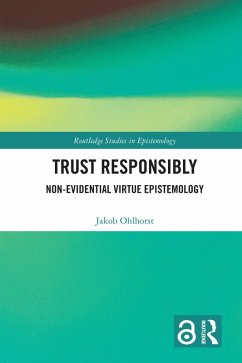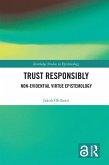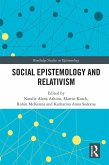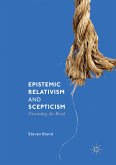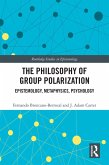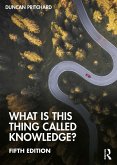Dieser Download kann aus rechtlichen Gründen nur mit Rechnungsadresse in A, B, BG, CY, CZ, D, DK, EW, E, FIN, F, GR, HR, H, IRL, I, LT, L, LR, M, NL, PL, P, R, S, SLO, SK ausgeliefert werden.
Sven Bernecker, University of Cologne, Germany
"Ohlhorst's book masterfully merges hinge (or non-evidential) epistemology and a dual theory of intellectual virtues. The result is an original, highly interesting view that sheds new light on debates concerning scepticism, hinge epistemology, and virtue epistemology. I strongly recommend reading the book. It is an excellent piece of work."
Nikolaj Pedersen, Yonsei University, South Korea
"This is an elegantly written, accessible and sharply argued book that uses the resources of virtue epistemology to defend hinge epistemology. A substantial and eye-opening plea for hinges that might move even staunch skeptics about hinges."
Thomas Grundmann, University of Cologne, Germany
"The book is packed with insightful ideas about many epistemological issues, offering carefully crafted arguments for a picture of knowledge that merges in an extremely attractive way hinge epistemology, virtue epistemology, and dual process theory."
Giorgi Volpe in Asian Journal of Philosophy

